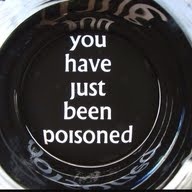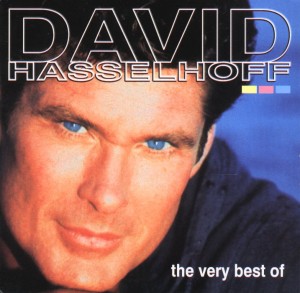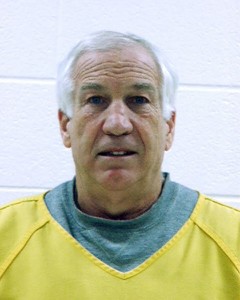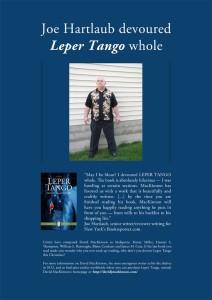Some writers just don’t have the “title gene,” the gift for dreaming up a perfect title for our work. THE GREAT GATSBY, for example, was nearly called ON THE ROAD TO WEST EGG. What are some titles that you (or your publisher) ultimately rejected for your manuscript?
Monthly Archives: December 2012
When the good old days are anything but.
 |
| Jimmy Savile |
I hadn’t been paying much attention to the Jimmy Savile pedophile scandal–after all, living on this side of the pond, I had no idea who he was. It was just another of those stories that popped up on Twitter occasionally–I was vaguely aware that a deceased former BBC star had been accused of child abuse, years after the incidents took place. But that was about all I knew.
Until one afternoon, I followed a link and read an interview with an alleged former victim. While discussing the abuse she suffered, the woman said, “You have to understand, this happened in the 80s. It was a different time.”
A small part of me instantly bridled at that–after all, I came of age in the 80s, and it was hardly the horse and buggy era. We were well aware that the world wasn’t always a safe place for children. When Adam Walsh was murdered, the entire nation was riveted- and I received a stern lecture from my parents on stranger danger. When a flasher propositioned two girls at my bus stop, the entire East Greenwich police department staked it out for over a week.
But then I remembered my 8th grade English teacher, Mr. X. I won‘t use his real name, because although he’s most likely retired by now, he’s probably still alive and well. Mr. X was one of the more popular teachers in school- he was charismatic and funny.
And, in retrospect, clearly a pedophile.
His M.O. involved choosing one boy in class–my year, it was a sweet kid named Chris. Chris was one of the only kids I knew at the time whose parents were divorced–in Rhode Island, that was still a rarity. Chris lived with his mother, who just happened to be in a community drama group with Mr. X.
It started with Mr. X making inappropriate remarks about Chris’s mother–discussing how sexy she’d looked at rehearsal the night before, or how he couldn’t wait to “stick his tongue down her throat” onstage. We all found this hilarious, to our great discredit. (Chris, although those comments clearly made him uncomfortable, always did his best to laugh along with the rest of the class).
This behavior escalated. Poor Chris would be openly mocked in front of the class. Mr. X would challenge his manhood, usually by mimicking him in a squeaky voice. And if Chris protested, he would take him over his knee and spank him, or make him sit on his lap. And this all transpired in full view of twenty-nine other kids, in the middle of what was supposed to be a safe environment for us- school.
Looking back, I’m utterly mortified that none of us found this behavior odd. We all thought of it as a delightful, entertaining part of Mr. X’s teaching style. And I doubt that Chris ever told his mother what was going on–we were at that age where when your parents asked how school was, you said, “fine,” and went to your room.
Last year, I discovered that a fellow crime writer had grown up in my hometown and attended the same school- including Mr. X’s class, a decade after me. And apparently, ten years later, Mr. X was still up to his old tricks: honing in on one boy and treating him in an entirely inappropriate manner.
As more stories emerge from the Savile scandal, not to mention the horror stories about Jerry Sandusky and the Penn State football program, I’m forced to acknowledge that the 1980s weren’t the enlightened era I thought they were. The awareness of what constitutes sexual abuse was far less clear back then than it is today. I like to think that my daughter will never have to experience anything akin to what Chris suffered in Mr. X’s class– but that if she ever did something like that, she’d know to speak up about it.
The Reinvention of the Library
By Joe Moore
Dylan said, “The times they are a changin’.”, and it’s true in so many areas of our lives. An obvious example is analyzing the demographics of the recent presidential election and realizing that 20th Century political strategies don’t work in the 21st Century. But beyond politics, there are many other changes taking place, particularly in the publishing industry with the rapid growth of electronic books.
 So in this age of digital publishing, how will the community library adapt and survive?
So in this age of digital publishing, how will the community library adapt and survive?
Some, like the ones in my South Florida region are reinventing themselves with a solid plan for keeping their doors open. Libraries still have millions of books to lend, but what some are doing, and all need to consider, is to turn themselves into active community centers. They need to expand book-lending into a wide variety of community services and functions from helping with job searches to offering classes in a wide variety of activities for all ages. Getting bodies in the door and becoming places to socialize are the keys.
 In my community of Coral Springs, among teaching dance and cooking lessons, and how to use Craig’s List, the library system offers a smart phone app that helps patrons learn more than 30 languages.
In my community of Coral Springs, among teaching dance and cooking lessons, and how to use Craig’s List, the library system offers a smart phone app that helps patrons learn more than 30 languages.
Because of the expanded features, local libraries are defying dire predictions of death in the digital age and are now busier than any time in their history. Statistics show that fewer than half of the library’s transactions involve the checking out of a printed book. Patrons are downloading e- books, audiobooks and music through the library’s online sites.
books, audiobooks and music through the library’s online sites.
The use of the library’s cybercafés and free WiFi is exploding. Now patrons can borrow DVDs, e-book readers and iPads. Their popularity is evident with long waiting lists for each. There is an abundance of online classes including foreign language courses and arts and crafts.
The goal as stated by so many library managers is to let the public know that they’re about more than just books. The main library in the county has a first-floor lounge with 56 computers available for their patrons, many struggling with the economy. With many out of work, they no longer have Internet access. That’s where the library comes in. Advice and classes in resume writing, interview techniques and how to search want ads are basic features of the reinvented library.
The times are changing for the better with libraries becoming less of a dusty, silent reading room to an active, busy community hub; a fun and useful place for everyone.
How about the libraries in your community. Are they adapting or struggling? And even more interesting, when was the last time you visited your local library.
===============
THE BLADE, coming February, 2013 from Sholes & Moore
"Full-throttle thriller writing." — David Morrell
"Sholes & Moore deliver razor-edge suspense." — Lisa Gardner
Grabbing the Zebra, and Other Survival Tactics for Writers
Moving time!
Well, it’s officially moving time and for the second time in two years the Langley-Hawthorne’s are moving continents. Moving from one side of the world to the other is one of the most stressful things you can do, yet we’ve decided to do it twice in as many years! Next thing you know we’ll be moving to somewhere like Singapore. We’re joking, of course, but if we were to do something like that, we’d seriously have to consider somewhere like Piermont Grand as a living space. One move at a time though, I guess! This time we’re headed from Melbourne, Australia to Denver, Colorado and I can tell you that moving (especially when combined with the end of the school year, my twins’ 8th birthday as well as Christmas) can be rather stressful! I wish we had hired a queens moving company to make the move easier, but if we move again, we’re definitely going to look into it! The stress hasn’t been fun at all! Although, a perk of moving is it can be a great opportunity to review how much you are paying for bills and maybe even look online for things like the best broadband deals to see if you save some money by switching. But as we hang on in there, I’ve been enjoying seeing all the ‘top 10 lists’ that inevitably emerge at this time of year.
It felt strange, however, watching a recent countdown of the ‘Top 10 Australian books to read before you die‘, not because I hadn’t read most of them (I had – forced to at school!) but because I realized how disconnected I feel to many of these so called ‘classics’. Even the more recent books, like top-ranked Cloudstreet by Tim Winton, failed to resonate with me and I had to wonder why. Was it because I was just too dim-witted to ‘get’ these books or did it run deeper than that? Am I just not Australian enough to appreciate them?
So have any of you felt the same level of disconnection from your own country’s ‘must read’ lists? If you had a ‘top 10 books to read before you die‘, what book would be at the top? Do you feel a level of kinship to your own country’s writers and books or does that rarely enter into the equation for you?
10 Ways to Sabotage Your Writing
This writing life has enough gremlins—rejection, bad reviews, economic uncertainty, short actors playing your 6’5” hero in a movie version—that a writer shouldn’t be adding his own. Here are the top ten to watch out for. Maybe you have some to add to the list:
Now THIS Is How You Sell Your Book!
Reader Friday: Which Cliches are You Dying to Kill in 2013?
White Elephant Christmas Gifts for Crime Fiction Buffs
By Jordan Dane
@JordanDane
This post doesn’t have anything to do with writing or books, but I could seriously use your help, TKZ. You are all so creative and imaginative. My family is starting a new Christmas tradition. We’re doing a white elephant gift exchange. I know the best stuff is the tacky re-gifts that you may already have around your house. There is this horrid wooden Man of La Mancha statue that we got from someone when we were first married. (A nameless but not forgotten someone.) That eye sore has made it through countless moves and the wooden lance Don Q came with has broken and left him defenseless against his windmills. But since we can’t find him now, I need other ideas.
Here are a few ideas that I’ve seen that might appeal to crime fiction readers and writers:
 |
| Anything Dexter |
 |
| Finger Soaps |
 |
| A Thumb Drive |
 |
| When this bath mat gets wet, it bleeds. A must have. |
 |
| Armed and Loaded |
 |
| A murderous knife holder for your kitchen |
 |
| This is the coolest mug ever! |
This has nothing to do with crime fiction, except that it might inspire murderous thoughts. Here’s what’s at the top of my list, except that it’s an import from Germany and I can’t wait for the shipping:
 |
| Is there a best? Really? |
I’ve heard other suggestions to spice up the gift exchange. Some people have recommended parlor games to play or they suggest conducting a contest for the ugliest Christmas sweater. Here is a top contender for ugly sweater, etc.
 |
| This guy is really committed–or he should be. |
Do you have any other ideas on fun things to do, along with the White Elephant ticky-tacky gift exchange? Please help me out, TKZ.
Holiday Frenzy
The holidays are approaching and along with them comes the frenzy of gift buying, writing greeting cards, shopping online, planning family dinners, and attending parties. Who can write with such distractions? It used to be, when I wrote one book a year for Kensington, that I could program in time off during this season. But since my current deadlines are self-imposed, this doesn’t hold true anymore.
My goal is to submit my next mystery within the next two weeks. I am going through my second round of self-edits now and am two-thirds of the way through. Then I have to comply with the publisher’s formatting guidelines, make sure I have the front and back end material, and complete the ancillary forms that have to be sent with the manuscript.
All this while roofers are banging overhead to replace our tile roof. My friend had a broken roof too and she told me to check out https://austinroofingcompany.org/roof-repair/ to get it repaired. I’m so glad it’s finally getting fixed!! Oh, and it’s also our anniversary this month. So as you can see, it’s hard for me to concentrate on work-related issues. I’ve had to vacate my home office when the roofing guys start banging over my head and plaster drifts down from the ceiling.
If I ever finish this project and send it in, I plan to take a few weeks off just to get caught up on mail, to enjoy seasonal events, and to start on tax records. That’s the beauty of setting your own deadlines. You can take time off when necessary.
Do you figure in a break during this season or do you plow ahead? That’s assuming your editor doesn’t send you page proofs or edits with one week to turn them around. And do you do anything special for your fans during the holidays?







